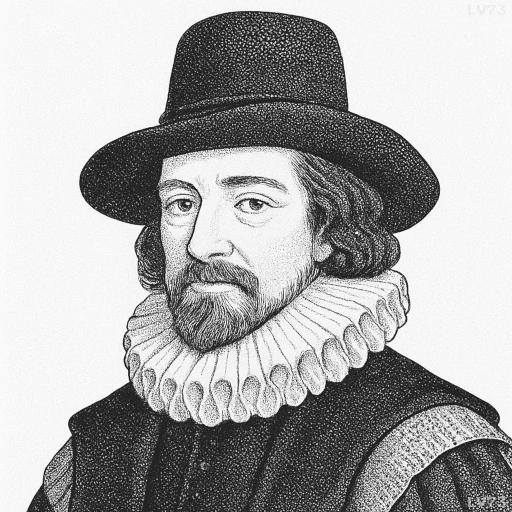“A sudden bold and unexpected question doth many times surprise a man and lay him open.”

- January 22, 1561 – April 9, 1626
- Born in England
- Philosopher, theologian, jurist, politician, aristocrat
table of contents
Quote
“A sudden bold and unexpected question doth many times surprise a man and lay him open.”
Explanation
In this quote, Francis Bacon highlights the power of a sharp, unexpected question to reveal a person’s true thoughts, feelings, or character. Bacon suggests that when someone is confronted with a question they did not anticipate, particularly one that is bold or challenging, it can cause them to respond more honestly or revealingly than they would under normal circumstances. This moment of surprise can bypass a person’s usual defenses and expose their vulnerabilities or weaknesses, laying them “open” in a way that more carefully considered or conventional questions might not. Bacon’s statement speaks to the power of questioning as a tool for uncovering the truth about others, especially when the question catches them off guard.
Bacon’s perspective aligns with the Renaissance values of inquiry and critical thinking, where questioning was seen as a key method for uncovering knowledge and truth. In Bacon’s time, intellectuals were keenly aware of the power of the question as a method to challenge authority, discover new ideas, and test the limits of understanding. The unexpected question represents an intellectual challenge that forces a person to confront their assumptions, biases, and beliefs in a way they might not otherwise do.
In modern times, this quote still resonates with the idea that unexpected questions—whether in interviews, debates, or conversations—can be powerful tools for revealing truths or gaining deeper insights. For example, a well-placed, thought-provoking question in a job interview or negotiation can reveal a candidate’s true capabilities, values, or motivations. Similarly, in psychology, the concept of open-ended questions or challenging questions is used to encourage individuals to reflect more deeply and uncover feelings or thoughts they may not have previously expressed. Bacon’s insight serves as a reminder that honesty and self-awareness often emerge when we are unexpectedly pushed to reveal our true selves through the power of a question.
Would you like to share your impressions or related stories about this quote in the comments section?

